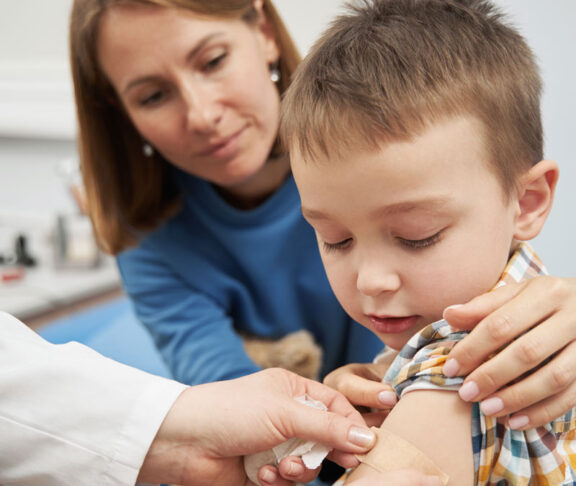
Kingston Mills
Professor of Experimental Immunology, School of Biochemistry and Immunology, Trinity College Dublin
An immunology scientist issues a strong reminder as to why it’s important for people to annually vaccinate against influenza (flu), which can be particularly concerning for more vulnerable groups.
Last winter, there was an increase in the number of flu cases reported across Ireland, highlighting the need for vaccination against the virus as the new season approaches.
Flu can be debilitating
Vulnerable groups such as young children, the over 65s, those who are immunocompromised and health workers are particularly susceptible. Prof Kingston Mills, who is Professor of Experimental Immunology at Trinity College Dublin, says: “It’s really important that people are vaccinated. Traditionally, children bring the virus home from the creche or school and spread it to the rest of the family.
“Unlike the common cold, which is not going to put you into bed, influenza is a disease that will leave you debilitated and in a lot of cases, hospitalisation can result from the infection. It can turn into pneumonia, and that can be difficult to treat.”
A rise in flu cases
Figures from the Health Protection Surveillance Centre (HSPC) for the first week of January 2025 show a total of 3,800 cases of flu were reported. Of those, 138 children were aged under one; 775 were aged between 65 and 80; while 660 cases were of people over 80.
Prof Mills, who works on different types of vaccines and previously on the immunology of influenza infection, signals the general drop off in the uptake of most vaccinations since the Covid-19 pandemic. However, flu jab uptake in children has remained steady, and there has only been a drop of 1% in adults.
“During the pandemic, people were convinced of the benefits of vaccinations, but since then, I think a sense of either fatigue or complacency has set in, and there is a lot less impetus to vaccinate,” he says. “For example, the MMR (measles, mumps and rubella) vaccination is an extremely effective vaccine, one of the best ever made — and it really does work, but the uptake has declined and resulted in outbreaks of the measles.”
The problem with flu is that it
mutates very rapidly, and
this is why we need to
vaccinate every winter.
Weighing up risks and benefits
Prof Mills believes misinformation in the media may have led to negative thinking about vaccinations. The benefits and risks of vaccines are assessed by regulatory authorities before approval, he highlights: “I think it’s important to say that some people may experience side effects.” These can include a short fever, a stuffy nose and fatigue for a day or two.
Currently, children from the age of two to 17 are offered a free nasal administered vaccine. If the nasal spray is unsuitable, alternatives are also offered. An awareness campaign is being launched in October to remind parents of its availability and urge them to book slots with their GP or pharmacy.
Mutations make predictions impossible
The vaccine is a mix of a number of strains of the virus. These strains are selected and changed periodically based on the circulating strain. “The problem with flu is that it mutates very rapidly, and this is why we need to vaccinate every winter,” explains Prof Mills. “The immunity you gained against last year’s viruses may not protect against this year’s circulating strain.”
With flu strains, there is also the ability for a human virus to combine with a porcine or avian one to create a completely new type of flu that has never been seen before. “This is what can result in pandemics, and the last flu pandemic we had was in 2009. We have had previous ones, and you can never predict what will happen,” says Prof Mills.
As a strong advocate for vaccinations, Prof Mills points to the examples of the almost complete eradication of killer diseases smallpox and polio, as well as the successful HPV jab against cervical cancer.


